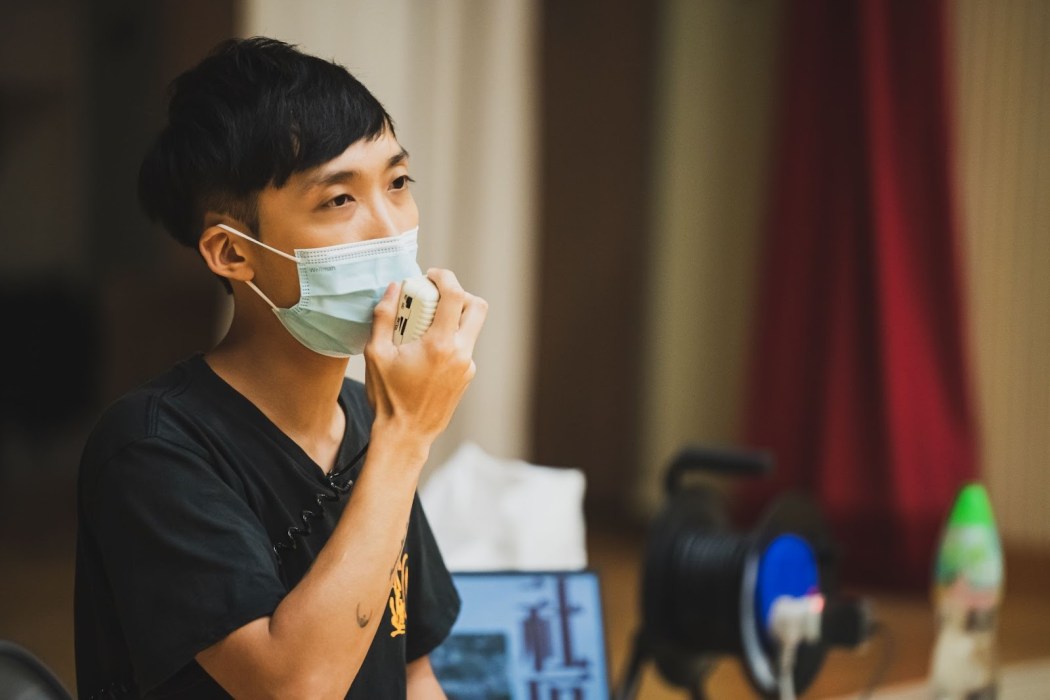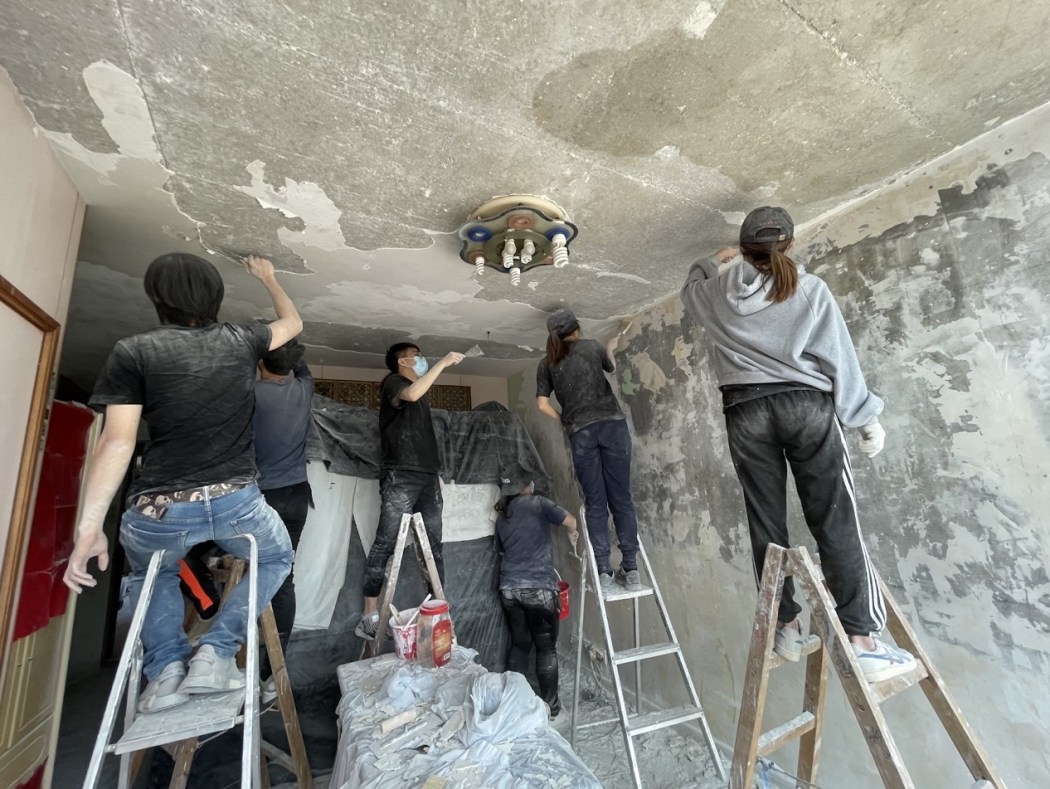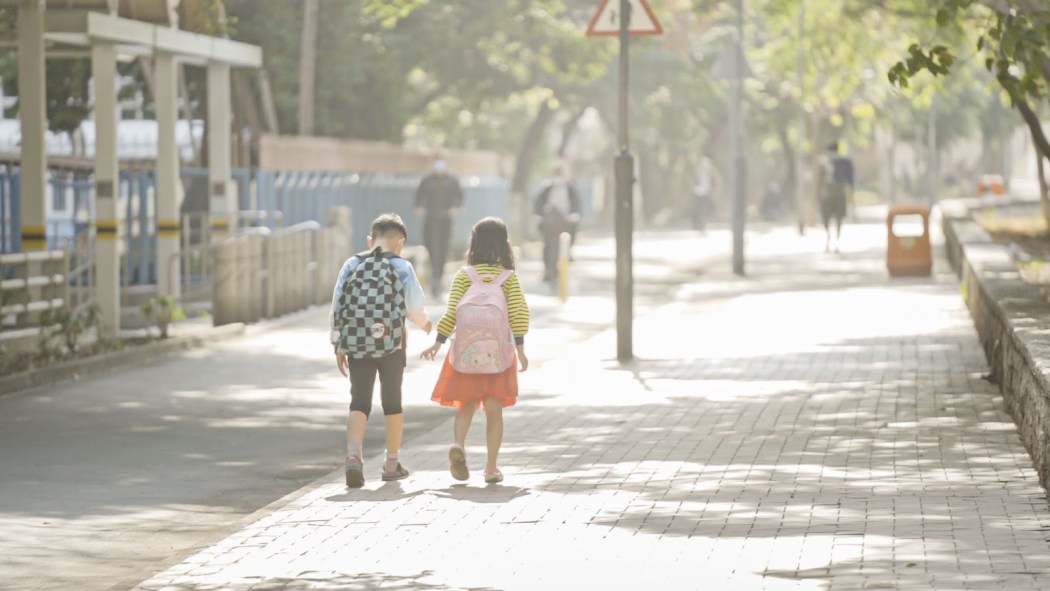By Amelia Chan
The words “District Councillor” on the front door of Matthew Lam’s office have been covered up. On July 8, he resigned over concerns that – as a result of a new government-imposed oath-taking requirement – the authorities might demand repayment of the salary he has earned during 18 months in elected office.
An amendment to the Public Offices Ordinance, which came into effect on May 21, requires district councillors to swear an oath “upholding the Basic Law and bearing allegiance to HKSAR.” Local media sources said that district councillors who participated in, or used their office as polling stations, for the 2020 pro-democracy LegCo primaries would be unseated.

They may have to repay their salary and allowances, which could come to HK$1 million, from the day they took office if disqualified for breaching the oath.
So far, according to Stand News, 259 of Hong Kong’s 452 directly elected district councillors have stepped down. The reasons for their resignations include being arrested or jailed over accusations that they breached the national security law. Some are now living outside Hong Kong in self-imposed exile.
Lam was one of those who resigned early last month. He told HKFP that he thought he was very much “at risk” of being disqualified and was concerned about the repayment of salary over the 1.5 years.
Lam was elected in 2019 as the district councillor for Shui Wah, a constituency in the Yuen Long District. He is also the convenor of the political group Tin Shui Wai Connection. The group was formed by Tin Shui Wai netizens on the online forum LIHKG during the anti-extradition law protests and unrest.

Its members secured four seats in the 2019 District Council election. Tin Shui Wai Connection was also one of the organisers which applied for the police force’s approval for the July 1 pro-democracy rally this year.
“I had mixed feelings when I was making the decision to resign. It is sad and heart-breaking to leave my colleagues and residents. Our projects will also be suspended. But at the same time, I am a bit relieved to be freed from all the burdens,” said Lam.
“All pro-democracy politicians knew the day would come, but I never thought that it would arrive this early,” he said.
‘How can we save ourselves?‘
On June 27, Lam hosted a last residents’ meeting in Tin Shui Community Centre. More than 200 Tin Shui Wai residents attended to discuss how they could continue with community work after their district councillors are disqualified or resign.

“There is sad news coming every moment, but seldom do we talk about how our local work should continue. Our community has to move forward even when we are wallowing in anger and sadness. There are still minorities and vulnerable people to be taken care of,” said Lam.
He added that the aim of the meeting was to prompt everyone to think about how they could offer help when there were no pro-democracy district councillors any more.
Reaching out
Tin Shui Wai was formerly dubbed “the city of sadness.” The new town was originally a fishpond area, which was reclaimed in the 1980s mainly for residential purposes. Located near the border of mainland China and far away from the city’s central hub, Tin Shui Wai housed many new immigrants and residents from low-income backgrounds.
The lack of services and support for inhabitants have also produced a spate of problems, including high poverty and unemployment rates, as well as suicide cases and family tragedies.

With limited job opportunities available in the area, many spend a lot of time and money commuting to work in other districts. Many also label Tin Shui Wai a “bedroom community” as so many residents use it only as a place to sleep.
“We travel frequently to other places for work and entertainment, but rarely spend time connecting with others in our neighbourhood,” said Lam. “I have often asked myself this question since the day I ran for office: born and raised here, what future do we imagine for our community?” he added.
To him, bread and circuses were inextricably linked to district councillors before 2019. What came to people’s mind regarding their job duties would be distributing resources to the elderly. “Giving away free food and gifts as well as hosting free tours used to be the way to enlist the support of residents to vote for them in upcoming elections,” said Lam.

“‘Babysitters” would be the best description for district councillors in the past. “What they had to do was solely helping residents in need, such as filling in application forms for government schemes and solving the problems they were facing. But what other more substantial roles can district councillors play to contribute to the community?” asked Lam.
“I can still recall a slogan written by a former district councillor that said ‘Don’t panic when you encounter problems, come and find us!’,” said Lam. “However, I think taking the initiative to reach out to the needy is equally important,” he added.

Lam recalled his experience during a home visit to the elderly last year. He and other volunteers discovered an old woman sleeping on a wooden board and toilet rolls instead of a mattress. Bed bugs were biting her.
“It is hard to imagine that there are still a handful of people leading a poor life in our estate,” said Lam. “We are grateful that many residents tried to help the old woman after we posted about her story on Facebook,” he added.
Community mobilisation
Apart from home visits, Lam and other volunteers in the neighbourhood formed a household maintenance team for residents. This was because the maintenance service provided by the Housing Authority is limited, and also often involves a long wait.

“To be honest, we knew nothing about maintenance in the beginning,” said Lam. “But thanks to residents with expertise who volunteered for this project, many of us learnt practical skills,” he added. However, Lam claimed that he feels a bit disappointed at times when some residents take their service for granted.
Lam said there are a handful of residents who will only approach them when they need help. “However, we have strengthened our relationships during the process; some who were being helped before would take the initiative and volunteer to help others,” he said.
Joel Wang, the 11-year-old co-founder of Tin Shui Wai Concern Group, also attended the last residents’ meeting on June 27. Members of the group are all secondary and primary school students who spend their time doing community work and handling residents’ complaints after school. “Everyone can volunteer and engage in community work, even if you are only a student or don’t have any expertise,” said Wang.

Another 15-year-old founder of the concern group, Jayden Cheung, appealed to everyone: “We should rely on ourselves from now on and never let the community deteriorate. We can all help with the cases that were originally handled by our district councillors!” he said.
Terence Tong, a district councillor assistant from another constituency in the Yuen Long district, stressed that everyone should remember they are all neighbours regardless of their occupations. “We have the ability to save ourselves and make a difference to the community,” he said.
“We should note that it is impossible to come to a conclusion for everyone regarding how to continue with our community work because we all have different ways to help,” said Tong. “No one should ever think of being a free-rider in our community as we are all a part of it,” he added.
Self-discipline and mutual help
Matthew Lam, the district councillor of Yuen Long, acknowledged that resources are limited in the community. Since he took office, he had kept trying to cultivate strong self-reliance among residents in Tin Shui Wai.

He pointed out that although residents do not need to register when receiving resources from them, they should not take more than they need. He always reminds residents to put themselves into others’ shoes by instilling in their minds the concept of “not to take more than they need as others then cannot receive help”.
“It is not only about stopping people from being greedy, but also prompting them to think how their behaviour will influence others,” said Lam.
Lam and his team have initiated a number of programmes that involve mutual help in the neighbourhood.

Outside his office is a tray labelled “Food bank”, with some canned food and biscuits on it. “We found out that residents were rummaging in rubbish bins for food. It is hard to imagine this happening in our estates,” said Lam.
Lam has encountered scavengers and street sleepers in Tin Shui Wai before. As some refused their help at that time, he said setting up a food bank for them to take whenever they needed would be a better solution. Lam feels grateful that many residents in the district support the project and have donated a lot of food.
Keep going
“Doing community work gives me a sense of satisfaction,” said Lam. “The political atmosphere makes us feel depressed and feeble, as if we cannot bring drastic changes even when we try our best to do so. However, when it comes to community work, I feel relieved as there are observable changes. Residents begin to connect with each other, and this has been my driving force to continue serving everyone,” he added.

Asked what his last message was as a district councillor to Shui Wah residents, he answered: “I always say Shui Wah has become better not because of me, but because of everyone in the community.”
“Even if there are no pro-democracy district councillors in the future, I hope what we have established in these 1.5 years will not come to an end due to my resignation. Remember, we all can take up the duties of district councillors and reimagine our community. It is not the end but the beginning,” he said.
Amelia Chan is a final year undergraduate studying politics at the University of Hong Kong.
Support HKFP | Policies & Ethics | Error/typo? | Contact Us | Newsletter | Transparency & Annual Report | Apps
Help safeguard press freedom & keep HKFP free for all readers by supporting our team
























